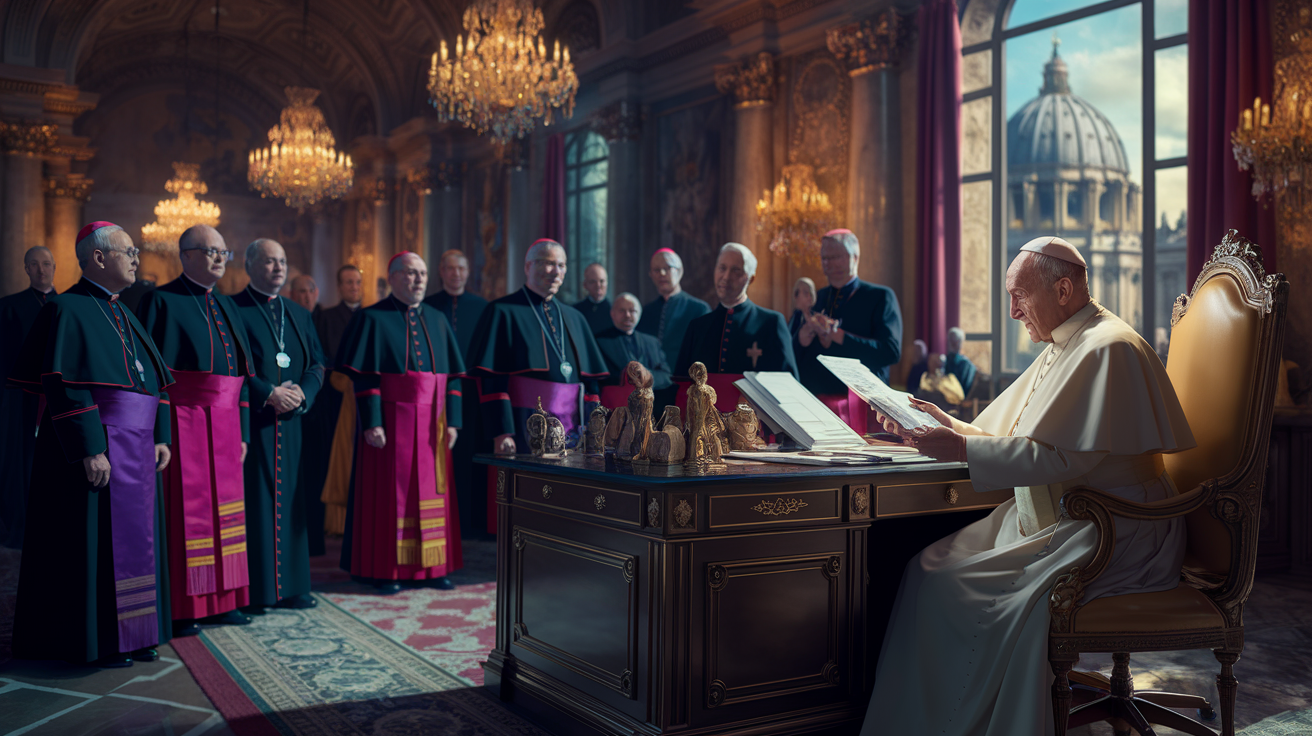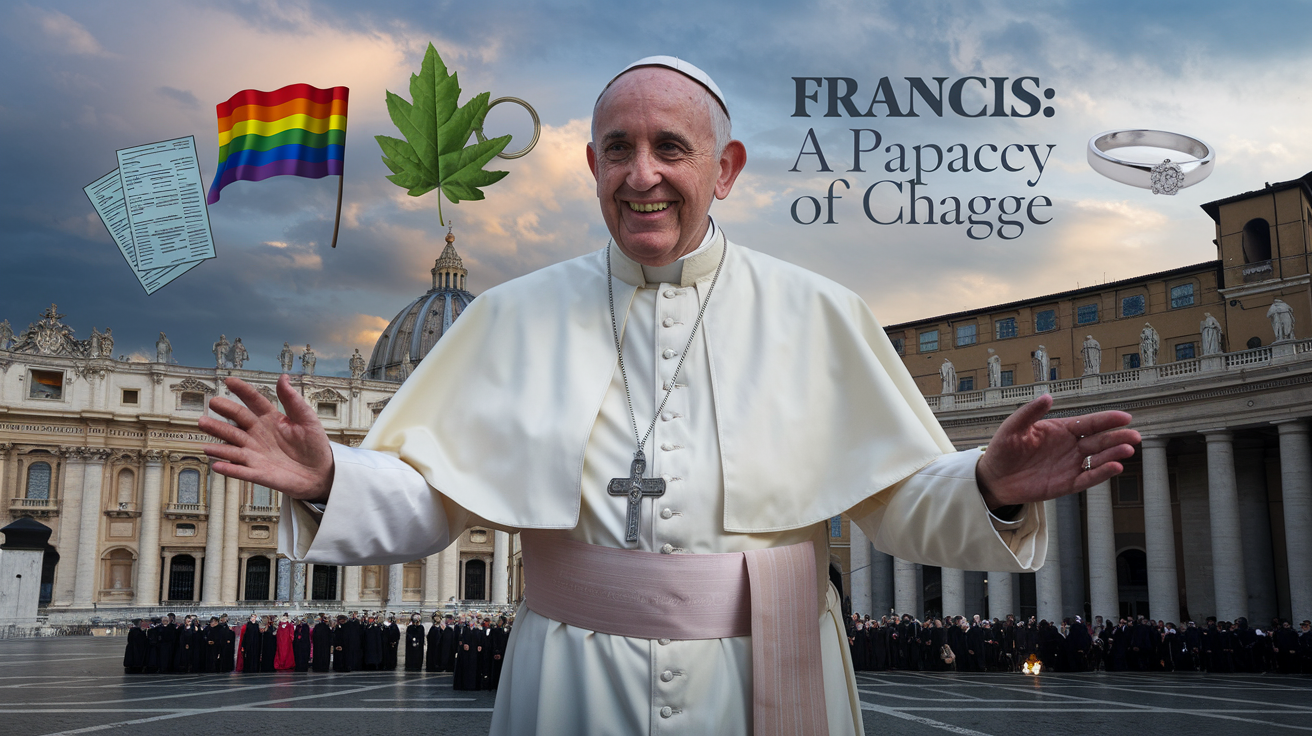In this post, we’ll dive into the 5 most controversial decisions that have defined Pope Francis’ papacy. We’ll explore how these choices have reshaped the Catholic landscape, challenged long-standing traditions, and set a new course for the Church in the 21st century. Whether you’re a devout Catholic or simply curious about religious leadership in our modern world, these insights will give you a fresh perspective on one of the most influential figures of our time.
Embracing LGBTQ+ Catholics
Shifting tone on same-sex relationships
Pope Francis’s approach to LGBTQ+ Catholics marked a significant departure from his predecessors. His famous “Who am I to judge?” statement in 2013 signaled a more inclusive attitude. While maintaining traditional Church doctrine, Francis advocated for civil unions, emphasizing the need for legal protections for same-sex couples.
| Francis’s Approach | Previous Approach |
|---|---|
| More inclusive | Less accepting |
| Civil unions support | No support |
| Pastoral care focus | Doctrinal focus |
Environmental activism and “Laudato Si'”
Addressing climate change as a moral issue
Pope Francis’s encyclical “Laudato Si'” framed environmental protection as a moral imperative. He emphasized the interconnectedness of ecological and social issues, urging global action. The Pope’s stance challenged traditional Catholic priorities, sparking both praise and controversy among faithful and world leaders alike.
| Key Points | Impact |
|---|---|
| Climate change as moral issue | Shifted Catholic discourse |
| Interconnected ecology and society | Broadened environmental debate |
| Call for global action | Influenced policy discussions |
Reform of Vatican finances

Restructuring the Vatican Bank
Pope Francis initiated a major overhaul of the Vatican Bank, addressing longstanding concerns about transparency and financial irregularities. He implemented stricter oversight measures and closed thousands of suspicious accounts.
| Key Actions | Impact |
|---|---|
| Account closures | Improved transparency |
| Stricter regulations | Enhanced credibility |
| External audits | Reduced corruption risks |
Appointing outside experts to oversee finances
Tackling corruption within the Church
Synodality and decentralization efforts
Empowering local bishops’ conferences
Pope Francis’s synodality approach aims to decentralize decision-making, giving local bishops more autonomy. This shift promotes inclusive dialogue on contentious issues, fostering a more responsive Church. However, traditionalist factions resist these changes, fearing a departure from established doctrines.
| Aspect | Traditional Approach | Synodal Approach |
|---|---|---|
| Decision-making | Centralized in Vatican | Empowered local bishops |
| Dialogue | Limited | Encouraged and inclusive |
| Flexibility | Rigid | Adaptive to local needs |
Approach to divorce and remarriage
“Amoris Laetitia” and communion for divorced Catholics
Pope Francis’s approach to divorce and remarriage, outlined in “Amoris Laetitia,” sparked controversy. The document opened doors for divorced and remarried Catholics to receive communion, emphasizing pastoral discernment. This shift challenged traditional doctrine, leading to debates within the Church about the balance between mercy and adherence to established teachings.
| Traditional View | Francis’s Approach |
|---|---|
| No communion | Case-by-case basis |
| Strict doctrine | Pastoral discernment |





